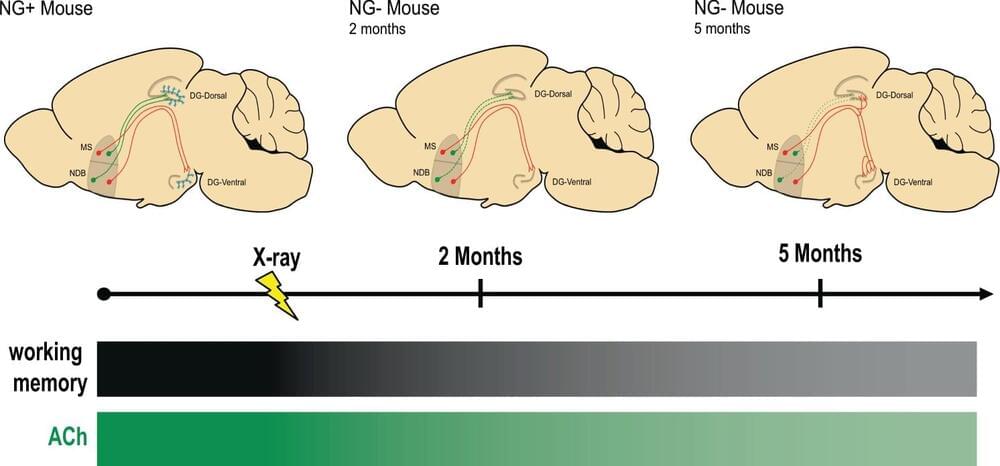A quarter-century ago, researchers discovered that adults, not just developing infants, can generate new brain cells, a process called neurogenesis. But it’s still not clear what role these new neurons play in health or disease.
In a new mouse study, Columbia University researchers found that neurogenesis in adults is critical for maintaining brain circuits that support working memory across the lifespan and chronic loss of adult neurogenesis causes progressive memory loss, like that seen in age-related cognitive decline and Alzheimer’s disease in humans.
The study, “Adult-born neurons maintain hippocampal cholinergic inputs and support working memory during aging,” was published in July in the journal Molecular Psychiatry.
